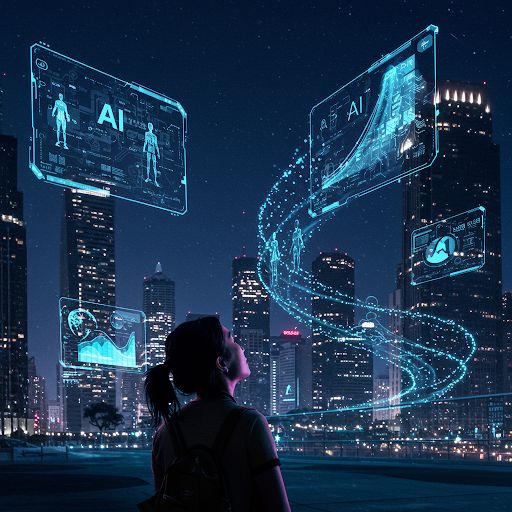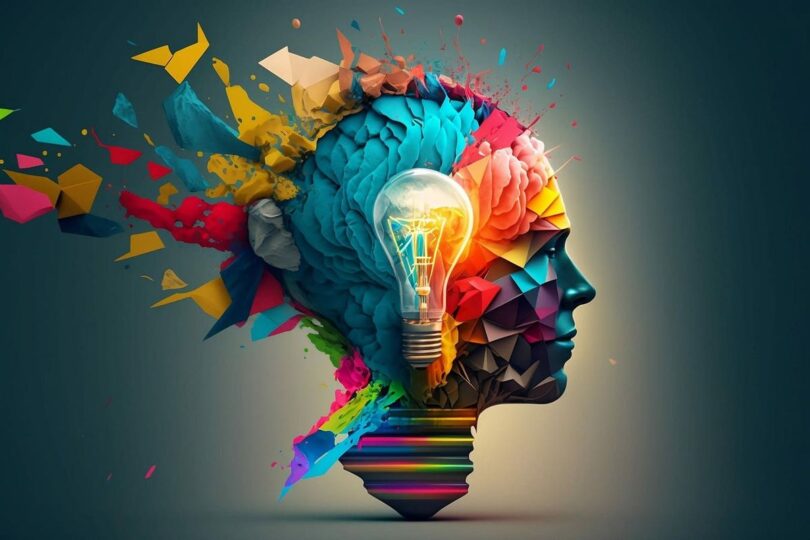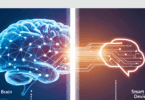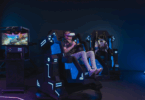
Artificial intelligence is no longer a distant concept. It’s already reshaping industries, redefining productivity, and transforming how we create. At the center of this revolution lies AI and the future of creative work—a topic sparking both excitement and fear among professionals worldwide.
From automated design tools to AI-generated music and writing, we’re witnessing a major shift. But what does this mean for artists, writers, filmmakers, and creative entrepreneurs? Are machines taking over, or are they offering something essential—an opportunity to innovate?
Let’s explore the reality, the opportunities, and the strategies you need to thrive.
A New Era of Human Machine Collaboration
AI is not here to replace creativity. Instead, it’s becoming a collaborator. Tools like Adobe Firefly and ChatGPT are empowering creators to brainstorm, generate drafts, and push the limits of their imagination.
These tools aren’t perfect, but they’re powerful. For example, AI can help artists experiment with new visual styles or assist writers in breaking through creative blocks. Developers are also using it to automate repetitive tasks, leaving more room for true innovation.
As AI becomes more intuitive, it frees creatives from mundane processes and helps them focus on high-level thinking and strategy.
The Emotional Intelligence Gap
Despite its growing capabilities, AI lacks something deeply human: emotion. It can replicate styles, tone, and structure, but it can’t replicate lived experience. This is where human creativity remains essential.
In storytelling, marketing, or product design, it’s empathy that sets humans apart. Emotional connection is the currency of great creative work—and it’s something AI still can’t master.
This gap is not a limitation, but a strategic advantage. The best creative professionals will learn to combine AI’s strengths with human depth.
Opportunities for Creatives
The future isn’t bleak—it’s rich with possibility. Here are some of the most promising opportunities:
1. New Creative Roles:
Prompt engineers, AI editors, and creative tech strategists are roles that didn’t exist a few years ago. These are now essential in fields like advertising, media, and software development.
2. Personalized Content at Scale:
AI enables personalization without the cost of massive manpower. This opens doors for freelancers, content creators, and agencies to offer custom solutions for a broader audience.
3. Boosting Productivity:
Using AI for time-consuming tasks—like research, formatting, or even code debugging—means more time for actual creation. For digital entrepreneurs and startup founders, this edge is invaluable.
Challenges You Shouldn’t Ignore
With any innovation comes disruption. AI raises questions about copyright, ethics, and job security. As content floods the market, standing out will require authenticity and strategy.
There’s also the issue of overreliance. While AI offers speed, creative professionals must avoid becoming dependent on it. Audiences can tell when content feels generic.
Regulation is catching up, but until then, creators must use AI responsibly and transparently. Your integrity is your brand’s most powerful asset.
The Human Edge in the Age of AI
So how can you stay relevant?
- Embrace Learning: Stay curious. Understand how tools work so you can use them smartly.
- Focus on Storytelling: Whether in tech, business, or entertainment, great storytelling still rules.
- Build Community: Engage with others who value creativity and innovation. Share knowledge and collaborate.
And remember: AI is just one tool in your creative toolbox. You are still the artist.
Final Thoughts
The truth about AI and the future of creative work is simple: it’s not about man versus machine. It’s about partnership. The creative professionals who thrive tomorrow will be those who adapt, lead, and continue to create with purpose.
At Fuzzy Port, we believe that imagination and innovation go hand in hand. The tools may evolve, but the curious mind behind the work will always matter most.







